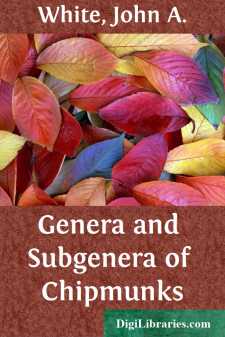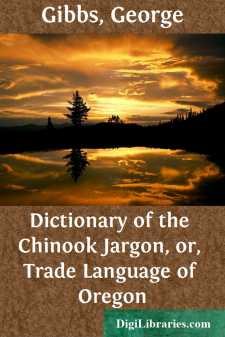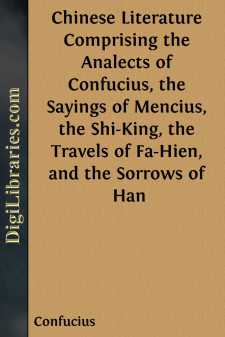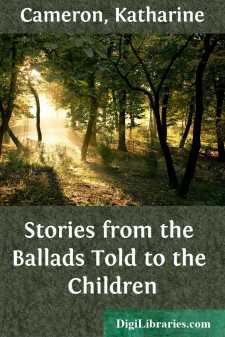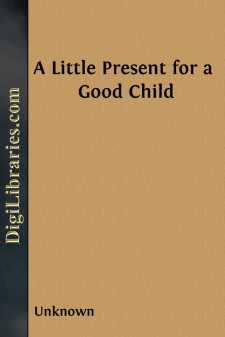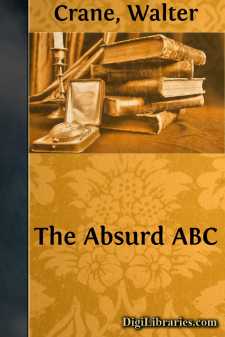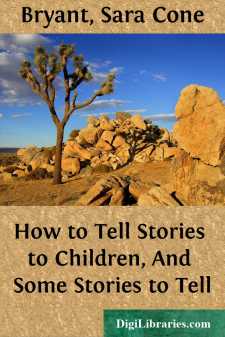Non-Classifiable
- Non-Classifiable 1768
Non-Classifiable Books
Sort by:
by:
John A. White
Introduction The supraspecific categories of the chipmunks, as in most other groups of squirrels, have been a source of controversy for many years. Before presenting new evidence and a review of older evidence bearing on the problem, it seems desirable to review briefly in chronological order, the taxonomic history of the genera and subgenera of the chipmunks. Linnaeus (1758:64) described the eastern...
more...
by:
George Gibbs
~PART I.~ CHINOOK-ENGLISH. NOTE.—The references, "Hale," "Cook," "Jewitt," are respectively toHale's "Ethnology of the United States Exploring Expedition," "Cook'sVoyages," and "Jewitt's Narrative." The others, as "Anderson," "Pandosy,""Shaw," "Tolmie," are from manuscript notes of those gentlemen...
more...
by:
Confucius
THE ANALECTS BOOK I On LearningвÐâMiscellaneous Sayings:вÐâ "To learn," said the Master, "and then to practise opportunely what one has learntвÐâdoes not this bring with it a sense of satisfaction? "To have associates in study coming to one from distant partsвÐâdoes not this also mean pleasure in store? "And are not those who, while not...
more...
"It is but a step from Confucius to confusion," said I, in a brief discussion of the Chinese question. "Then let us take it by all means," replied the artist, who had been an indulgent listener for at least ten minutes. We were strolling upon the verge of the Chinese Quarter in San Francisco, and, turning aside from one of the chief thoroughfares of the city, we plunged into the busiest...
more...
THE YOUNG TAMLANE The young Tamlane had lived among mortals for only nine short years ere he was carried away by the Queen of the Fairies, away to live in Fairyland. His father had been a knight of great renown, his mother a lady of high degree, and sorry indeed were they to lose their son. And this is how it happened. One day, soon after Tamlane's ninth birthday, his uncle came to him and said,...
more...
by:
Unknown
LITTLE PRESENT. The Squirrel leaps from tree to tree. The Hive doth hold the honey-bee. The pretty Butterfly is seen, When little girls trip o’er the green. The Owl until the evening sleeps. The Serpent on his belly creeps. The Lion roars, the woods resound. The raging Bull tears up the ground. The Raven for his food doth cry. The Eagle soars exceeding high. Whilst the Plowman drives his Plow. Betty...
more...
by:
Walter Crane
A for the APPLEor Alphabet pie,Which all get a slice of.Come taste it & try. B is the BABYwho gave Mr BuntingFull many a long day'srabbit skin hunting. C for the CATthat played on the fiddle,When cows jumped higher than'Heigh Diddle Diddle!' D for the DAMEwith her pig at the stile,'Tis said they got over,but not yet a while. E for the Englishman,ready to make fastThe giant who...
more...
by:
Sara Cone Bryant
SOME SUGGESTIONS FOR THE STORY-TELLER Concerning the fundamental points of method in telling a story, I have little to add to the principles which I have already stated as necessary, in my opinion, in the book of which this is, in a way, the continuation. But in the two years which have passed since that book was written, I have had the happiness of working on stories and the telling of them, among...
more...
by:
Sara Cone Bryant
Not long ago, I chanced to open a magazine at a story of Italian life which dealt with a curious popular custom. It told of the love of the people for the performances of a strangely clad, periodically appearing old man who was a professional story-teller. This old man repeated whole cycles of myth and serials of popular history, holding his audience-chamber in whatever corner of the open court or...
more...
by:
Howard Pyle
FOREWORD PIRATES, Buccaneers, Marooners, those cruel but picturesque sea wolves who once infested the Spanish Main, all live in present-day conceptions in great degree as drawn by the pen and pencil of Howard Pyle. Pyle, artist-author, living in the latter half of the nineteenth century and the first decade of the twentieth, had the fine faculty of transposing himself into any chosen period of history...
more...


